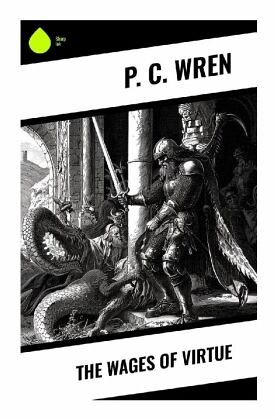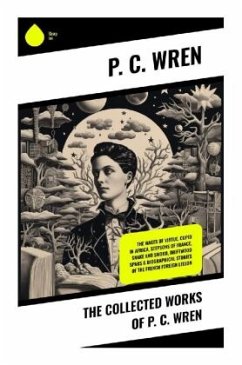
The Wages of Virtue
Versandkostenfrei!
Versandfertig in 6-10 Tagen
11,00 €
inkl. MwSt.
Weitere Ausgaben:

PAYBACK Punkte
0 °P sammeln!
In "The Wages of Virtue," P. C. Wren crafts a compelling narrative that explores themes of honor, personal sacrifice, and the moral complexities of human relationships set against the backdrop of colonial adventure. Wren's literary style is characterized by vivid descriptions and a rich tapestry of characters, intertwining introspection with action, as he delves deep into the psychological struggles faced by his protagonists. This novel reflects the early 20th-century literary context, drawing upon the colonial ethos while simultaneously challenging notions of chivalry and virtue in an evolvin...
In "The Wages of Virtue," P. C. Wren crafts a compelling narrative that explores themes of honor, personal sacrifice, and the moral complexities of human relationships set against the backdrop of colonial adventure. Wren's literary style is characterized by vivid descriptions and a rich tapestry of characters, intertwining introspection with action, as he delves deep into the psychological struggles faced by his protagonists. This novel reflects the early 20th-century literary context, drawing upon the colonial ethos while simultaneously challenging notions of chivalry and virtue in an evolving world. P. C. Wren, an author known for his fascination with adventure and exotic locales, was inspired by his own experiences in British colonial territories. His extensive travels and insights into cultural nuances allow him to infuse authenticity into his characters' journeys. This lived experience potentially shaped his exploration of virtue versus survival, as the characters grapple with moral dilemmas that resonate across time and place. "The Wages of Virtue" is a must-read for enthusiasts of classic literature and those intrigued by the complexities of human morality. Wren's multilayered storytelling invites readers to reflect on the nature of virtue and the consequences of one's choices, making it a timeless addition to any literary collection.













